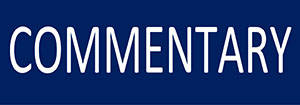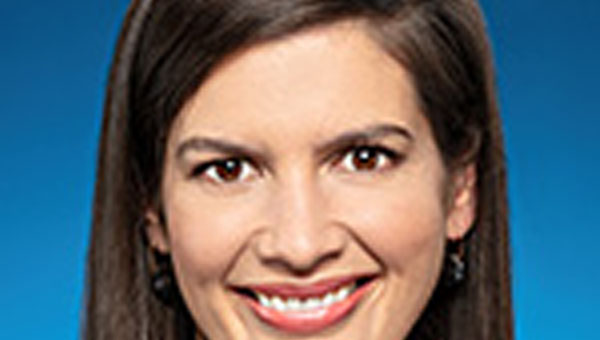By Yvonne Sam
Contributing Writer
 On December 18, Quebec’s Public Security Minister, Geneviève Guilbault, announced the commencement of an overhaul, aimed at modernizing and making Quebec’s police forces more answerable and accountable.
On December 18, Quebec’s Public Security Minister, Geneviève Guilbault, announced the commencement of an overhaul, aimed at modernizing and making Quebec’s police forces more answerable and accountable.
At a news conference kicking off the consultation process, the Minister stated that recent events within the force had eroded the confidence of the public, coupled with the fact that societal changes has had a direct and critical impact on the types of services police must provide, as well as their manner of interaction with citizens.
The 50-page document, entitled “Police Reality in Quebec: Modernity, Confidence and Efficiency”, lists the issues related to the provision of police services in this era of technological transformation, while addressing the concerns of citizens to the police.
Quebec sports multiple police forces: the Sûreté du Québec and 30 municipal police forces, plus 22 Aboriginal police forces. Currently the provincial police forces are in a state of utter chaos, and somewhat in urgent need of being policed, to say the least.
The present Head of the Surete du Quebec is on suspension, following an allegation related to criminal offences. Quebec’s Bureau of Investigations, known by its French acronym, BEI (Bureau des Enquêtes Indépendantes}, is leading the investigation.
Accusations of racial bias have been leveled at the Montreal Police, and Quebec’s Anti-Corruption Unit – UPAC — has failed to deliver convictions on many investigations.
 To achieve her goal, the Minister appointed a five–person panel of individuals with diverse backgrounds: — Louis Cote, a 27-year veteran of the SQ, and one who has been on several reorganization panels; Nicole Gilbeault, a former Quebec Court Judge, law teacher and media analyst; Bernard Sevigny, Mayor of Sherbrooke and who will act as spokesman and coordinator; Marlene Jennings, former Federal Member of Parliament and former associate Police Ethics Commissioner; and Alexandre Matte, former Head of the Quebec City Police Force.
To achieve her goal, the Minister appointed a five–person panel of individuals with diverse backgrounds: — Louis Cote, a 27-year veteran of the SQ, and one who has been on several reorganization panels; Nicole Gilbeault, a former Quebec Court Judge, law teacher and media analyst; Bernard Sevigny, Mayor of Sherbrooke and who will act as spokesman and coordinator; Marlene Jennings, former Federal Member of Parliament and former associate Police Ethics Commissioner; and Alexandre Matte, former Head of the Quebec City Police Force.
Mme. Guilbault has clearly stipulated that she is desirous of the panel having as much latitude as possible, in carrying out its work, further adding, that everyone deserves to be heard, including the Police.
“They are the ones who are bashed by public opinion, she said, “So they will need, and they will want, to express themselves. I want to hear their emotions, I want to hear what they have to say.”
On a budget of $1million, the panel will hold both public and in camera sessions, with Fall 2020 being the scheduled date for presentation of the findings, in order for the Minister to legislate, if necessary, by the next general election.
The truth be told, concerned citizens cannot laud the efforts of the Minister, as the move is considered as yet another blatant display of deja-vu. Quebecers have been down this road before.
The public-security critic with Québec Solidaire, MNA Alexandre Leduc, issued a statement, implying that the announcement by the Minister was nothing more than a public relations exercise to buy time, rather than take real action to clean up the police.
The Quebec Police Force remains a beleaguered institution. In 2011, a report, written by the Quebec Human Rights Commission, found that ethnic minorities in Quebec were subject to targeted and disproportionate police surveillance.
A 2015 study, Evaluation Du Plan Strategique en matiere de profilage Racial et Social, was commissioned by the SPVM to see if any advances had been made in addressing racial and social profiling. The research team comprised of Dr. Myrna Lashley, Dr. Ghayda Hassan, Serge Touzin and Annalisa Harris.
The report was shelved for two years and not made public until 2017, a delay of two years. The report found that police officers were missing the mark in many areas, such as training programs, hiring visible minorities, funding outreach programs, and transparency.
On September 29, 2017, Montreal’s Chief of Police, Philippe Pichet, released a 38-point action plan, once again aimed at improving citizen confidence in the police service, as well as strengthening transparency.
Included in the remedial measures was the hiring of Thierry Pauchant, who holds the Chair in ethics management at HEC Montréal, to act as a consultant on ethical issues. Despite ensuing criticism, The Public Security Minister has made it absolutely clear that the entire process, both the tabling of the document and the consultations that will follow, stems from the fact that almost 20 years have passed since the last recast of the main laws that govern the delivery of police services in Quebec.
Now more than ever, it has become apparent that the Quebec Police Force is in need of not only an overhaul but also a time-out call. Many instances of police brutality may have been averted by addressing law enforcement culture, training and supervision.
It is crucial that the overhaul pay attention to these facets to prevent more instances. Notwithstanding, we cannot afford to avoid talking about race and cultural differences, for in so doing, there would be failure to get at the root needed to make real progress.
As the Minister has prior stated, the police need to be heard, and they should be, particularly on the insularity of policing, the thin blue line that separates a paramilitary institution from the public, that it is committed to protecting and serving, and the resistance to genuine, civilian oversight.
A wise saying runs thus: You never change things by fighting the existing reality. To change something build a new model that makes the existing model obsolete. It is sincerely hoped that this would be the Final Call and the Father of all Police Overhauls.
Yvonne Sam, a retired Head Nurse and Secondary School Teacher, is Vice-president of the Guyana Cultural Association of Montreal. A regular columnist for over two decades with the Montreal Community Contact, her insightful and incursive articles on topics ranging from politics, human rights and immigration, to education and parenting have also appeared in the Huffington Post, Montreal Gazette, XPressbogg and Guyanese OnLine. She is also the recipient of the Governor General of Canada Caring Canadian Citizen Award.
 Pride News Canada's Leader In African Canadian & Caribbean News, Views & Lifestyle
Pride News Canada's Leader In African Canadian & Caribbean News, Views & Lifestyle





